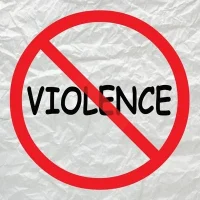Deadline: 08-Oct-2025
The United Nations International Children’s Emergency Fund has launched a new initiative in Turkey with a focus on strengthening child protection and addressing gender-based violence (GBV), while also tackling the persistent issue of child labour.
This effort is designed to reach the most vulnerable and hard-to-reach refugee, migrant, and Turkish children, adolescents, and their caregivers, particularly those impacted by displacement and the devastating earthquakes.
At the heart of the program is a comprehensive package of child and family protection services delivered by civil society organizations in close coordination with government authorities, municipalities, and statutory service providers. These services include outreach, early identification of at-risk children, case management, and survivor-centred GBV response. Specific interventions will focus on parenting support, mental health and psychosocial support (MHPSS), skills training to prevent child marriage and GBV, legal counselling, community awareness, and access to essential services such as education, healthcare, and documentation. Capacity development for service providers and continuous protection monitoring and advocacy are also central to this effort.
The initiative will be rolled out in Yozgat as well as 16 additional provinces, including Adiyaman, Adana, Ankara, Bursa, Gaziantep, Hatay, Istanbul, Izmir, Kahramanmaraş, Kilis, Konya, Malatya, Mersin, Şanlıurfa, Edirne, and Van. Indicators will track outcomes such as the number of children benefitting from child protection services, improvements in mental health, increased awareness of child marriage and GBV, and access to community-based psychosocial support.
A second major focus of the program addresses child labour. The objective is to ensure children engaged in, or at risk of, child labour are identified, referred, and provided with protection services. This will involve strengthening case management systems, improving cooperation between civil society, government institutions, and businesses, and tailoring interventions to local contexts. The program will also increase access to education, health, and social protection for affected children, while delivering parenting programs to support families. Efforts to build the capacity of businesses to adopt child rights and business principles are also encouraged.
By integrating child protection, GBV prevention, and anti-child labour strategies, UNICEF’s initiative aims to create safer, more protective environments for children and adolescents across Turkey. Through collaboration between communities, public institutions, and civil society, this program will not only respond to immediate risks but also foster long-term resilience and systemic change in protecting children’s rights.
For more information, visit UN Partner Portal.









































